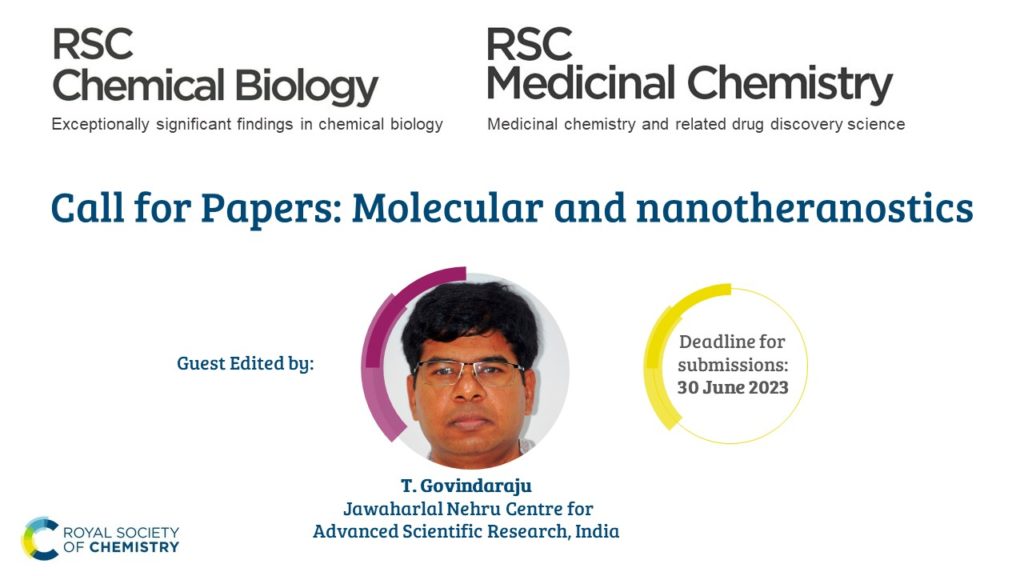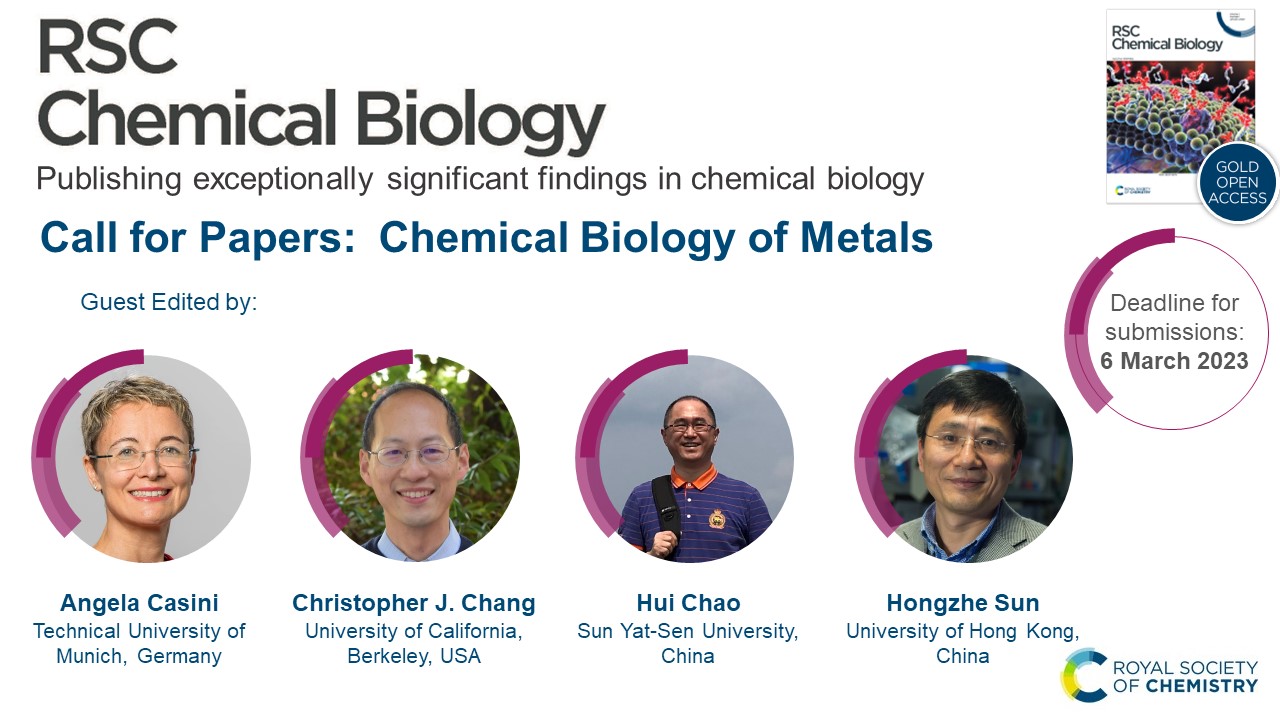
RSC Chemical Biology and RSC Medicinal Chemistry are delighted to welcome papers for an online themed collection on ‘Molecular and nanotheranostics’, guest edited by Prof. Thimmaiah Govindaraju (Jawaharlal Nehru Centre for Advanced Scientific Research, India).
Over a decade of intense research has positioned theranostics as a promising and integrated approach to advance biomedical research and medicine. The term theranostics essentially conveys the idea of combining therapeutic and diagnostic modalities to provide a holistic solution for disease management. Theranostics is also referred to as diagnostic therapy, wherein molecular and/or material tools for non-invasive treatment and diagnostic imaging are strategically embedded into a single system. For instance, multifunctional diagnostic platforms carrying therapeutic and target tracking agents offer remedial effects and imaging of markers in tissue or organs, which is used to assess disease staging, treatment planning and therapeutic efficacy.
Theranostics has the potential to revolutionize the practice and adaptation of personalized medicine to tackle chronic disease conditions like cancer and neuronal disorders. Generally, radiopharmaceutical, nano and macromolecular systems armed with tools to detect, treat, track, and image biomolecular targets in real-time have been employed as theranostics to effectively manage disease progression and cure.
In recent years, the field has witnessed the emergence of small molecules or small molecular conjugates as theranostic tools. This special collection in RSC Chemical Biology and RSC Medicinal Chemistry intends to cover and highlight advancements in molecular theranostics with particular emphasis on chemical biology of molecular design of theranostic tools and their selective interaction with the biomolecular targets to image and ameliorate the pathological conditions. This themed collection is anticipated to catalyze the development of precision theranostics as advanced and personalizable tools in chemical biology and modern medicine.
The deadline for submissions has been extended to 30 June 2023.
Articles can be submitted via the appropriate journal’s website, where you can find details on their scopes and focus. RSC Chemical Biology accepts exceptionally significant and breakthrough findings of interest to the chemical biology community, while RSC Medicinal Chemistry publishes significant research in medicinal chemistry and related drug discovery science.
RSC Chemical Biology: rsc.li/rsc-chembio
RSC Medicinal Chemistry: rsc.li/rsc-medchem
Authors are welcome to submit original research in the form of a Communication or Full Paper. Note that RSC Chemical Biology is a gold open access, journal, however submissions for this collection will have their article processing charges (APCs) waived.
When submitting your manuscript, please mention that it is intended for this themed collection in the “notes to the editor” box. The Editorial Office reserves the right to check suitability of submissions for both the journal and the scope of the collection, and inclusion of accepted articles in the final themed collection is not guaranteed. Promotion of the collection is scheduled for late-2023, with articles published online as soon as they’re accepted.



